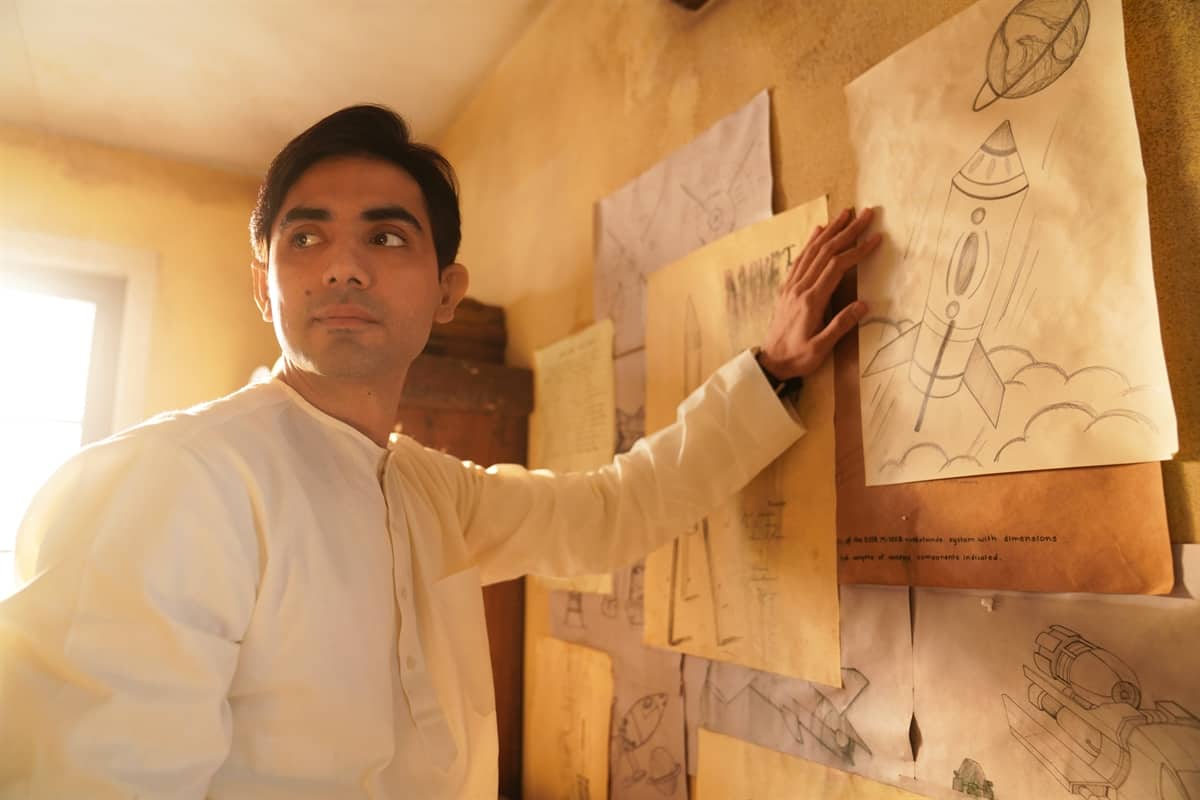Digital Review: ‘Rocket Boys’ (SonyLIV)

‘Rocket Boys’ is a biopic about physicists Homi J. Bhabha and Vikram Sarabhai, whose contributions made newly independent India prominently known on the world stage. Bhabha is a smart, charismatic renaissance man, who becomes the father of the Indian nuclear programme. Sarabhai is the mild-mannered but passionate creator of the Indian Space Program. But this isn’t a glorification of their personas, or a reframing of their achievements. ‘Rocket Boys’ is about what it takes to make history: madness, sacrifice, and privilege.
Each of these aspects is depicted through a relationship. Bhabha and Sarabhai embody the madness. We see their relationship grow from the first time they meet in 1940 until 1963, where the show’s timeline ends. What we see are two different people, with contradictory beliefs and ideologies. They approach life in their own ways – just how Jim Sarbh and Ishwak Singh approach their roles – but they always manage to push each other towards bigger and better achievements. Sarbh and Singh are perfectly cast for this clash, because on screen they work together the same way Bhabha and Sarabhai do – highlighting nuances in each other that may not have existed if the energies were different.
When someone is so committed to a cause, they are unable to commit to anything else. ‘Rocket Boys’ doesn’t dismiss this as a character quirk. These are conscious decisions made by the two men. So the sacrifices then are made unwillingly, by the women in their lives, played wonderfully by Regina Cassandra and Saba Azad. When wooing Mrinalini (Regina Cassandra), Vikram compares his attraction to her with gravity. But the gravity that keeps him stable ends up weighing her down, preventing her from taking flight. Regina Cassandra shows the heartbreak of Mrinalini, but never loses the dignity of the character. Mrinalini deserves better, and Cassandra never lets us forget this.
Privilege is a surprisingly prevalent idea in ‘Rocket Boys’. It is mentioned during Sarabhai and Bhabha’s very first meeting and is amplified throughout the eight episodes with physicist Raza Mehdi (Dibyendu Bhattacharya). Mehdi has worked his way up to be in the same rooms these men have access to. Each step up requires more effort, and with it, he has more to lose. He can’t afford the callousness and eccentricity that makes Bhabha so appealing. But to achieve the things Bhabha achieved – ‘Rocket Boys’ suggests – the access and audacity that comes with privilege is key. The rivalry between Mehdi and Bhabha also gives one of the most cathartic moments of the show, where the men briefly put their differences aside and revel in the magic and awe of a scientific breakthrough. Their perspectives might be different, but their goals are the same.
The writing commendably explains complicated scientific concepts, historical context and relationship dynamics without taking the viewer out of the scene. During the large time span covered by the story, the characters travel to different parts of India (and the world). Each location has its identity maintained and you see it in the people that have been cast, the languages that have been used. In Bangalore, you don’t hear Hindi in the background. The room full of Gujarati men has them speaking in their own language. Abroad, the characters are speaking their own native languages and our main character must keep up, answering in French or Russian. Most films forgo such details to make scenes easier, but ‘Rocket Boys’ writes around them, without hindering the understanding of the plot.
This attention to detail is what allows ‘Rocket Boys’ to explore the complexity of the story. The show is also very clear on what it doesn’t want to say. A clash in ideologies isn’t an excuse for hate. The plight of these women isn’t a dismissal of their value. And patriotism isn’t the blind belief of one’s own greatness, it’s the ability to dream for the greater good with your eyes wide open.








